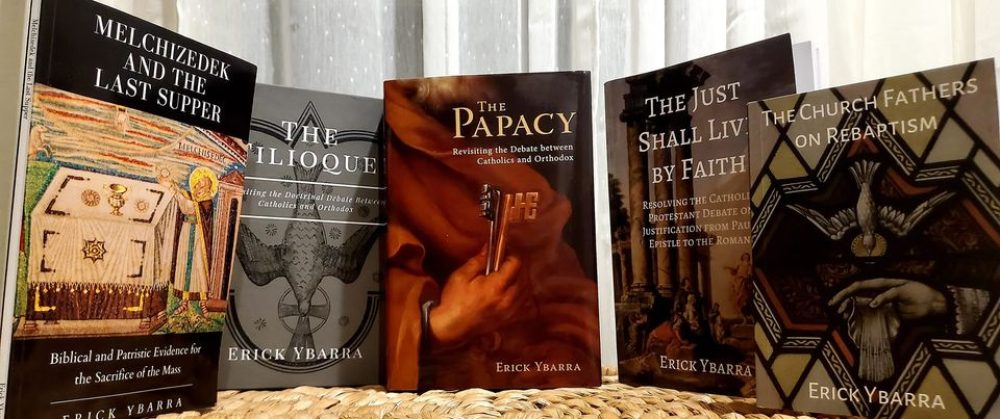
Dr. Douglas Farrow, Professor of Theology and Christian Thought at McGill University, threw down the gauntlet in a recent article for Catholic World Report with a sharp critique of the current regime run by Pope Francis. Though it is clear he put much thought into the content, I have to say that the article is ultimately a bust. The beginning portion decries the growing rise of “Papalotry” that begin to show itself, according to Farrow, with even the famous Dictatus Papae which came out during the Pontificate of Pope St. Gregory VII (1073-1085). I could find you similar claims being made by at least Pope St. Nicholas I (858-867) in his interaction with King Lothair II and his overturning of Episcopal synods in Constantinople in favor of St. Ignatious as rightful occupant of the Patriarchal chair. But I digress. In any case, the current situation in Rome is that the Papacy is beginning to be exalted above its rightful place and appropriate function (see Cardinal Ouellet’s letter to Archbishop Vigano, for one example). Thereafter, in the second half of the article, Farrow decries the beefing up of Episcopal Synods as carrying the ability to exercise magisterial authority, since this will allow the ability of fragmented Synods and particular churches going their own way. With Francis’s desire to decentralize the Papacy, this reduces him to a quasi-neutral referee, and may, in the end, this plan for decentralization is just another form of returning to Gallicanism.
Unfortunately, I too must end this like Farrow does. I don’t have any answers to this problem. Perhaps the same old CatholicAnswers-Type response will just have to do, namely, the Church has not officially used her extraordinary means of Teaching to endorse heresy or a break from the depositum fidei, despite the realization of the Relativism-nightmare that is allowed to reign freely all across the realm of the Catholic Church, from the Vatican downward, and from local parishes upward. However, I heartily commend the man who can be full within vision of a celebration of apostasy in what seems like the whole space of Christ’s institutional Church and still find the Church’s foundations unshaken because of a technical failure at exercising some highly conditioned and extraordinary form of Magisterial teaching. What is more likely to happen is that reasonable people are going to sense that the whole ordeal is a scam. And that is just the reality. Now, I don’t like that outcome either, but who are we to think that we are doing favors by hiding reality? We likewise do no favors to go well beyond the threshold of reason and cite “Where Peter is, there is the Church” in order to cover or, God forbid, defend things which grossly contradict the Gospel of our Lord.
In conclusion, I think we’ve arrived at a point in history, or perhaps we’ve arrived at this point for the 100th time or so, where, as Farrow says, a revisiting to Scripture and the Fathers on the limits and function of the Petrine ministry are teased out. For centuries the Papal apologists have been able to ride smooth with relatively orthodox Popes (perhaps, other luminaries were able to catch the blind spots before anyone else did). But just how can this be done without reversing the settled doctrines of Vatican I, Florence, Lyons, Dictatus Papae, and the Gregorian reform? If I have anything to say to this, it will have to be on a different article.

“But just how can this be done without reversing the settled doctrines of Vatican I, Florence, Lyons, Dictatus Papae, and the Gregorian reform?”
Pardon, but didn’t John Paul II AND Benedict XVI suggest the papacy is able to maintain its integral, theological purpose while exercising its ministry in different facets, according to historical circumstance?
I’m not sure reverting to an earlier form of Petrine application necessarily denies the papal doctrines. After all, aren’t they ultimately supposed to flow from it? Further, Some of the Pope’s currently used prerogatives (such as the personal selection of bishops in the Latin Rite) are so recent so as to be post Vatican I. The “right” to govern in such a fashion does not entail the “obligation” to do so.
I agree that Pope Francis’ mode of operation is scandalous and injurious to the character of the papacy, but it doesn’t necessarily go against canon law or official doctrine, does it?
Besides, Catholicism seems to teach that only God can judge a pope, and I suppose that as Catholics, we need to trust God has his hand in all of this and will see things through.
Hi John,
You wrote:
<>
Yes, and I believe it can. I will have to write a 2nd part to this, as indicated in the last paragraph. But thank you for pointing this out, brother.